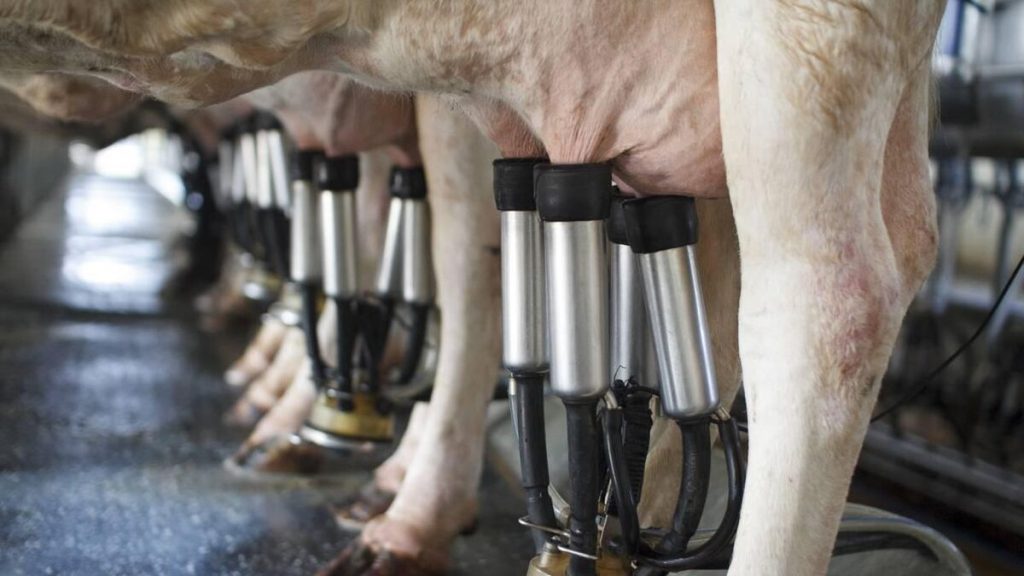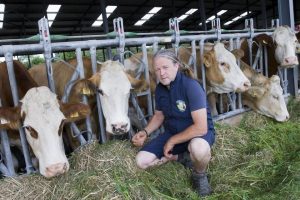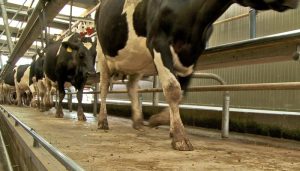
The ageing population of farmers can also leave agriculture more vulnerable to what is becoming a relentless onslaught of cyberattacks worldwide.
As cybersecurity companies report a 30% year-on-year increase in cyber attacks globally, reaching 1,636 attacks per organisation per week, the victims have inevitably included some farmers.
In the US, the FBI has reported an 8.2% increase in ransomware attacks in the USA’s agricultural sector. In surveys, almost half of farmers say concerns about cybersecurity are the biggest obstacle to digitalisation of agriculture.
Nevertheless, agriculture, one of the oldest human activities, is under pressure to reinvent itself for the digital age. For example, there are estimated to be more than 35,000 robotic milkers worldwide, providing digital data and insights that observation of animals alone cannot. The robot stores data such as milk yield, health status, and pregnancy information, and alerts a farmer to any unusual cow behaviour.
However, a farmer in Switzerland recently discovered to his cost that even milking robots can now be targeted, in the runaway global wave of cybercrime. It has been widely reported how Vital Bircher, a 70-cow dairy farmer in Hagendorn, between Zurich and Lucerne, became the victim of a ransomware attack.
Unknown cybercriminals (possibly in the suspected main cybercriminal locations such as Russia, Ukraine, China, the USA, Nigeria, or Romania) hacked Bircher’s milking robot software. The cybercriminals encrypted the stored data and demanded a ransom of $10,000 dollars for decryption.
The milking system manufacturer confirmed that Bircher’s robot had been hacked. He decided not to pay the ransom, because not receiving data, for example on the amount of milk produced, was not an emergency situation, and the robots can operate without a computer or network connection.
The hackers were defeated and left empty-handed. But Bircher estimated that the cyberattack cost him nearly €7,000, not least because he lost a cow and her unborn calf, which he blamed on not having access to the robot’s data on insemination dates.
With the help of an old version of the software, the farmer was able to recover some of the lost data. But his veterinary costs and the purchase of a new computer added to his costs. Cyberattacks in agriculture can affect digitally connected agricultural vehicles, milking robots, etc.
The ageing population of farmers can also leave agriculture more vulnerable to what is becoming a relentless onslaught of cyberattacks worldwide, growing by the day due to cybercriminals using ever more advanced techniques like artificial learning and machine learning, and due to new attacks being fueled by geopolitical tensions.
Check Point Software Technologies Ltd, a leading provider of cybersecurity solutions to corporate enterprises and governments globally, says cyberattacks have increased year-on-year by 35% in Europe, with Latin America (53%) and Africa (37%) even worse hit.
It reported an average of 1,999 weekly attacks per organisation in the healthcare sector, in the second quarter of this year, 15% higher than last year. Hackers like to target smaller hospitals which are underfunded and understaffed to handle a sophisticated cyberattack, which can be particularly lucrative if the hacker retrieves health insurance information, medical records numbers, and social security numbers.
An 8.2% increase in ransomware attacks in the second quarter of 2024 in the USA’s agri-sector was revealed when the Omaha, Nebraska field office of the FBI organised a symposium about the potential cyber threat to the country’s national food supply.
Eugene Kowel, special agent in charge of the FBI’s Omaha office, said: “There are three things I will point out about cyber threats facing agriculture today. They include the halting of your farm and ranch operations and food processing facilities due to ransomware attacks, the theft of farm data, and the risk posed by countries like China, Russia, Iran and North Korea, implanting malware on any of our industrial control systems and halting our food production. This becomes a national security concern”.
China has stolen trillions of dollars across many different areas of sophisticated US technology. And we know China wants to acquire US agriculture technology and overtake US agriculture companies.
“In recent years, we identified and indicted an executive of a company working on behalf of the People’s Republic of China, attempting to steal proprietary corn seed from a rural field in Iowa. The threats are real,” Kowel said.
The FBI recommended security updates for operating systems, software, and firmware, without delay; multi-factor authentication access to websites or applications; and no random clicking of links or use of unknown websites, to avoid covertly downloaded software intended to damage or disable devices; making backups of collected data (to protect against human error, hardware failure, virus attacks, power failure, and natural disasters); and having a cyber incident response plan ready (including calling the FBI).
The FBI is the lead federal agency in the USA for investigating cyberattacks and intrusions. It has issued particular warnings of business email compromise scams (one of the most financially damaging online crimes) that exploit people’s reliance on email for personal and professional business.
Identity theft can be used to commit theft or fraud; spoofing and phishing can trick you into providing sensitive information to scammers; and online predators are a growing threat to young people.
Ways to prevent cyberattacks
- Up-to-date systems and software, and strong, reputable anti-virus programs are needed to withstand scammers.
- Do not carry out sensitive transactions, including purchases, when connected to public Wi-Fi.
- A strong and unique password is recommended for each online account.
- Examine email addresses and scrutinise website URLs before using them, and don’t click on unsolicited emails or text messages.
- Even sharing pet names, schools, and family member data in online profiles and social media accounts can give scammers hints to guess passwords or security questions.
- Payments to unknown people or organisations seeking urgent monetary support are also a no-no.
You can now read the most important #news on #eDairyNews #Whatsapp channels!!!
🇺🇸 eDairy News INGLÊS: https://whatsapp.com/channel/0029VaKsjzGDTkJyIN6hcP1K

























